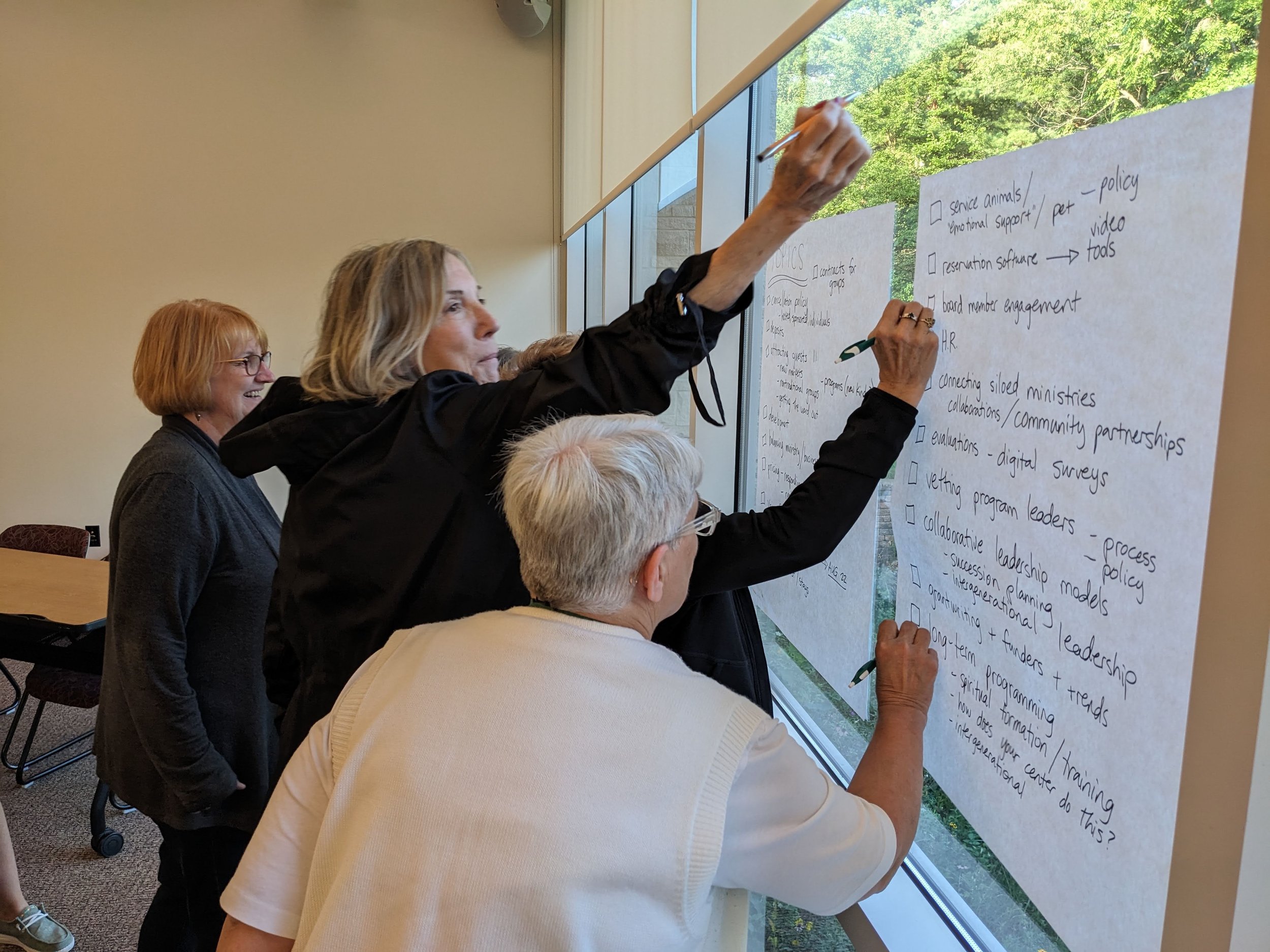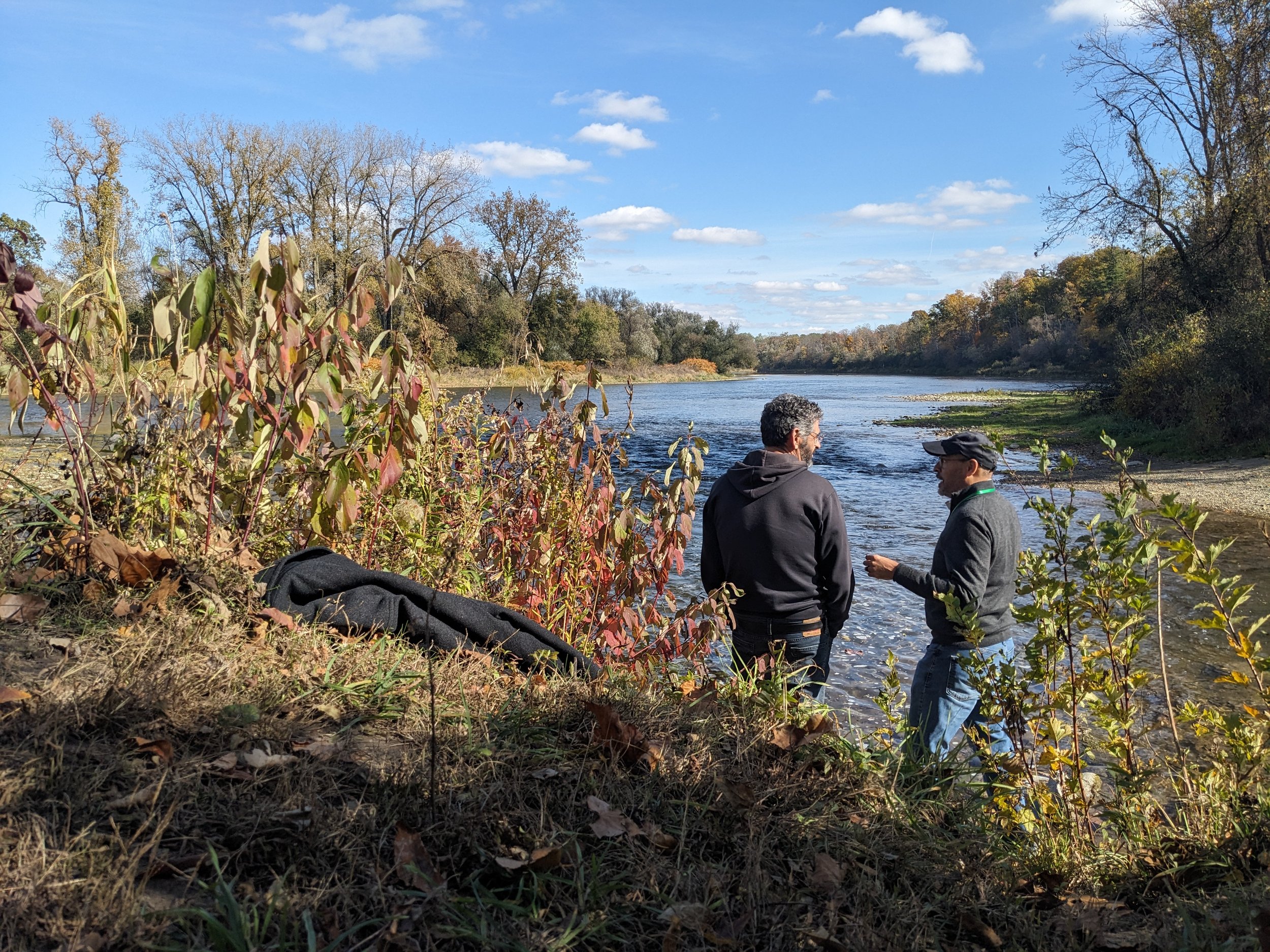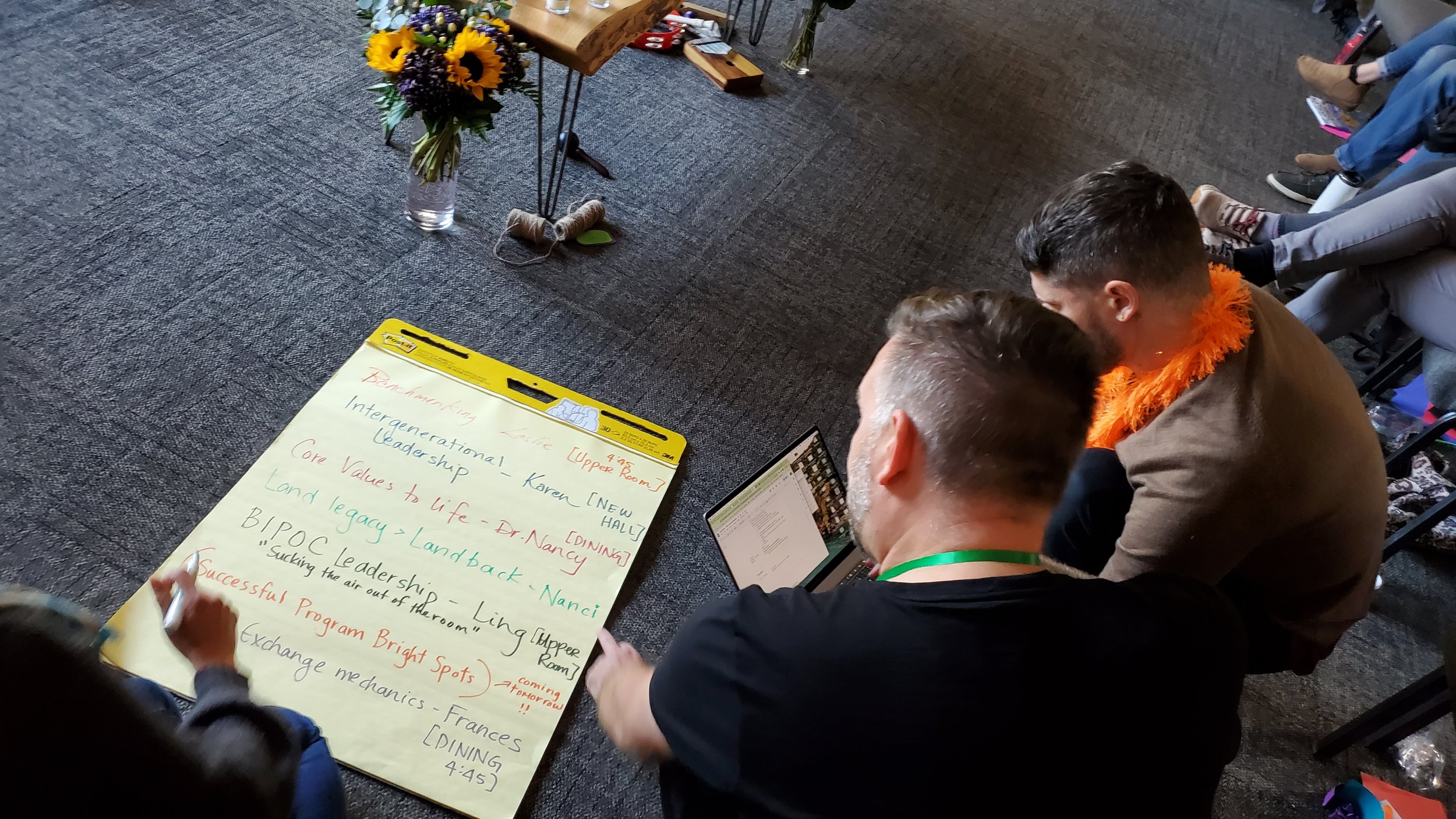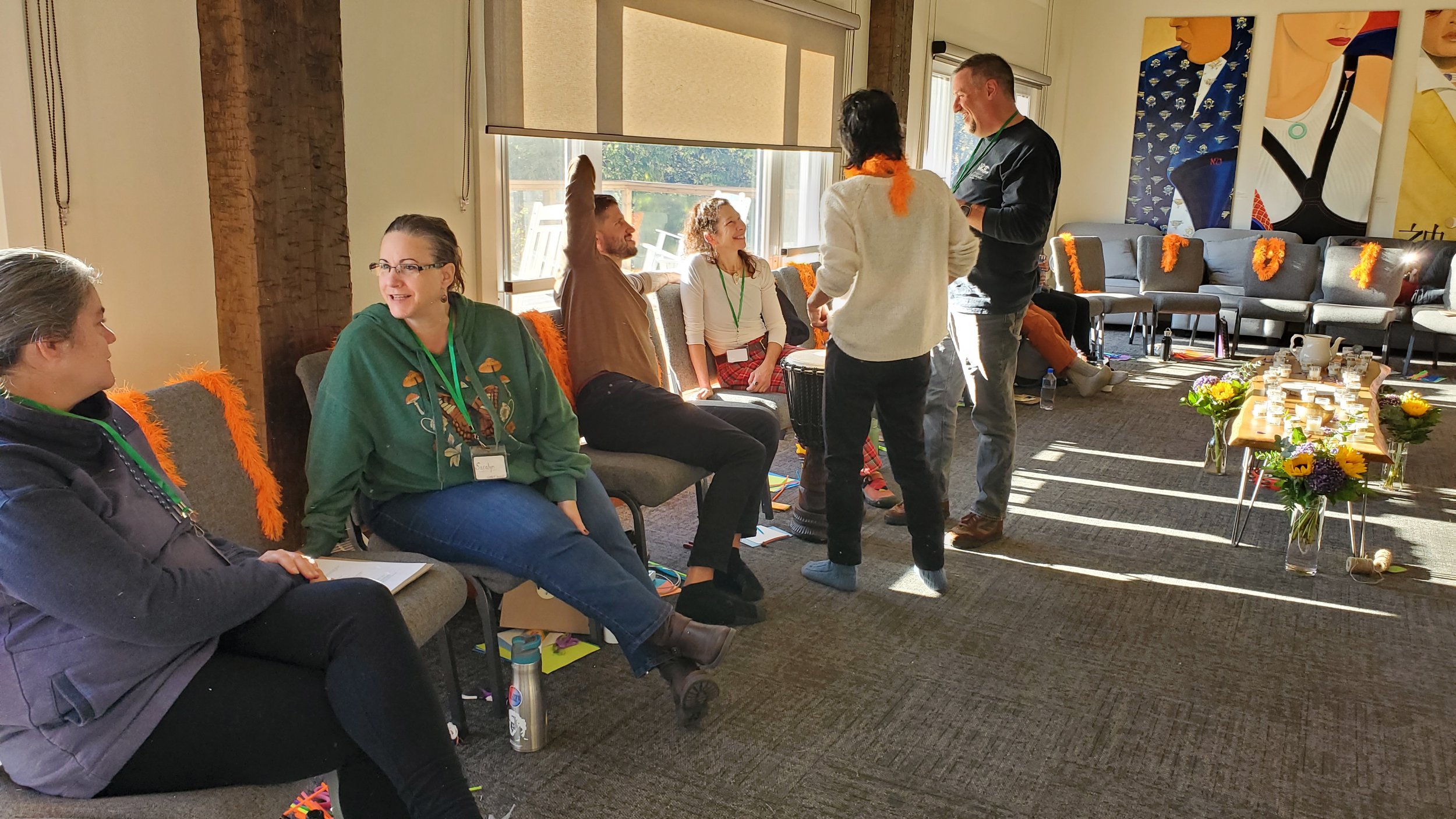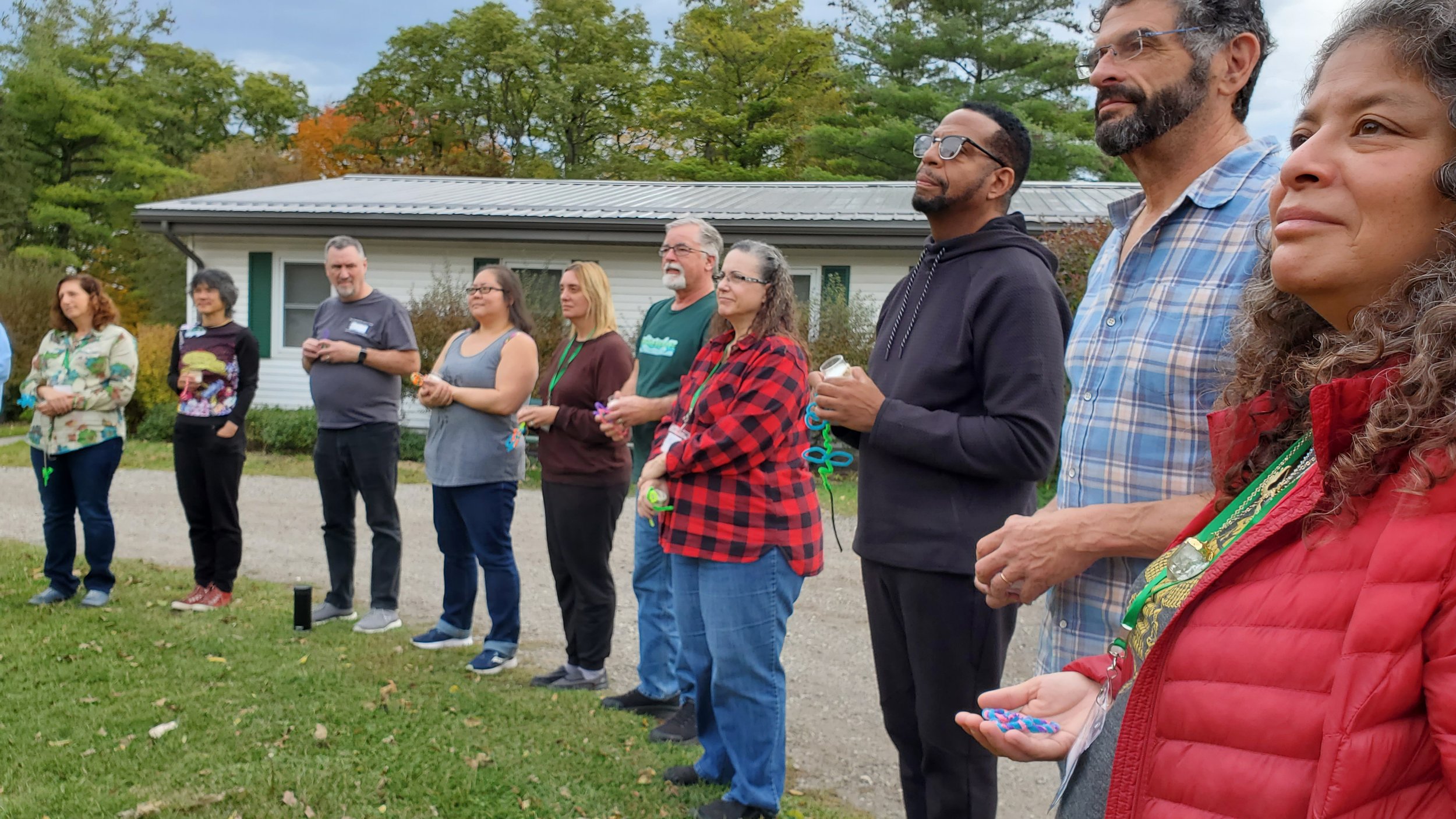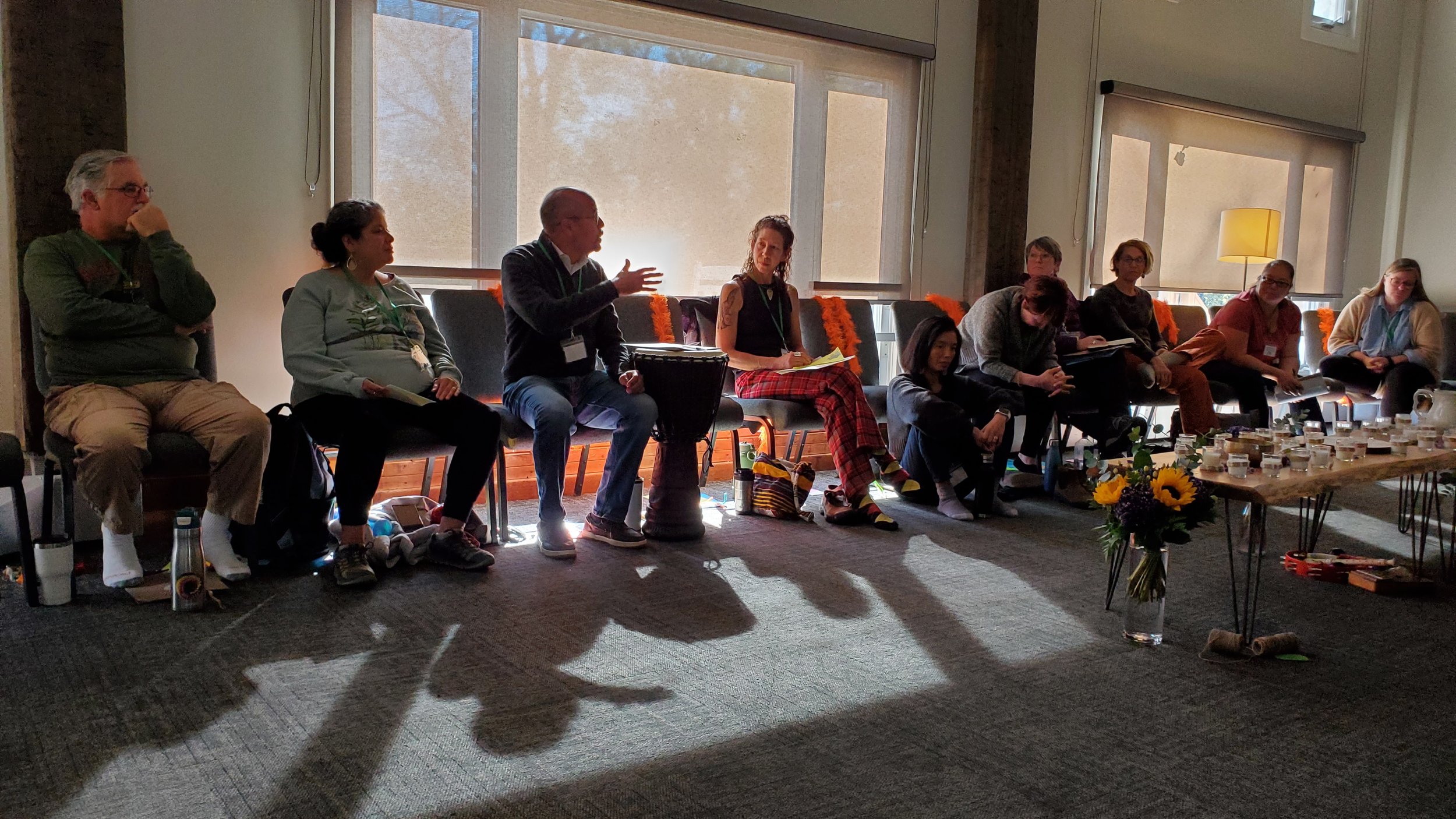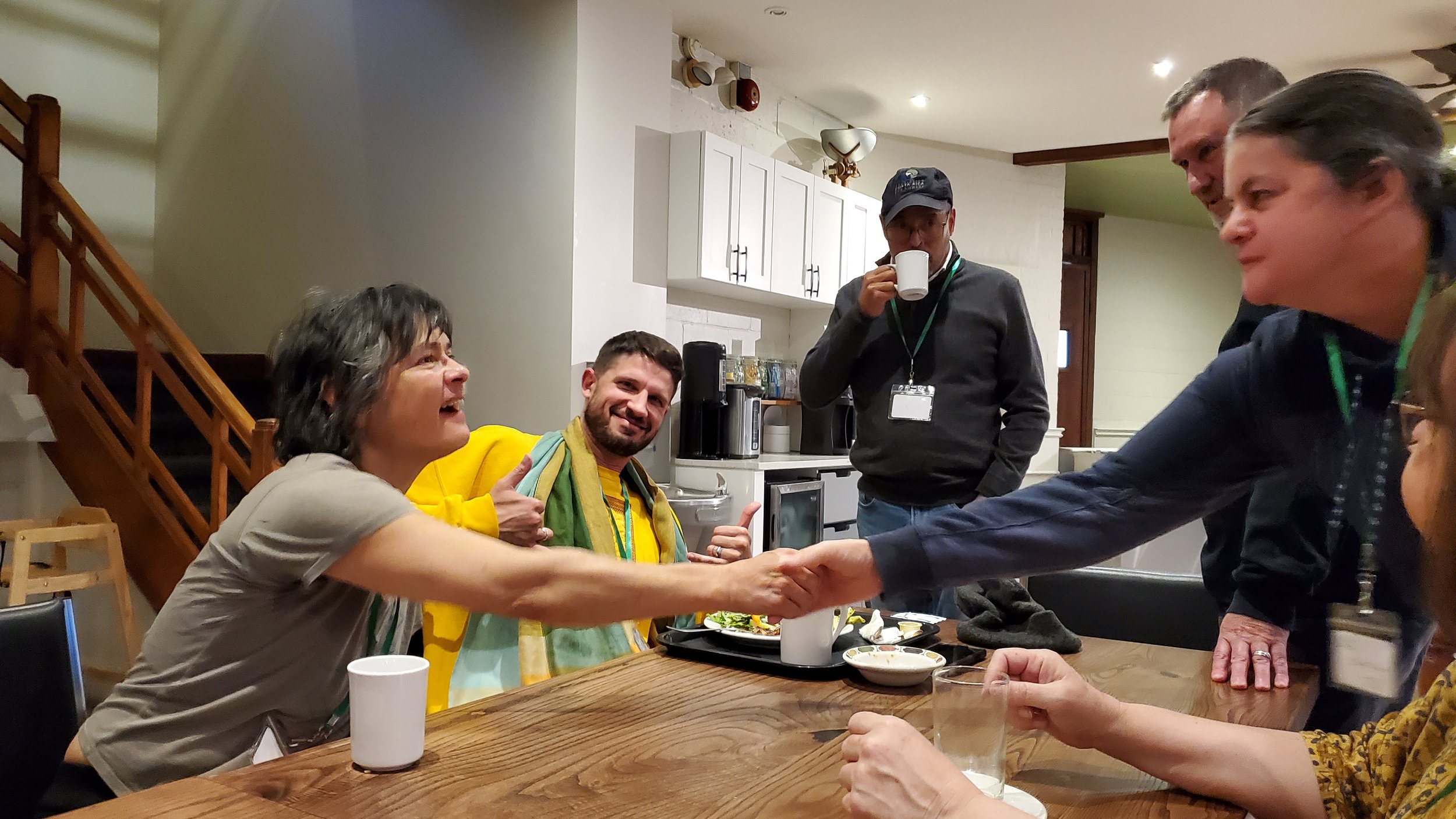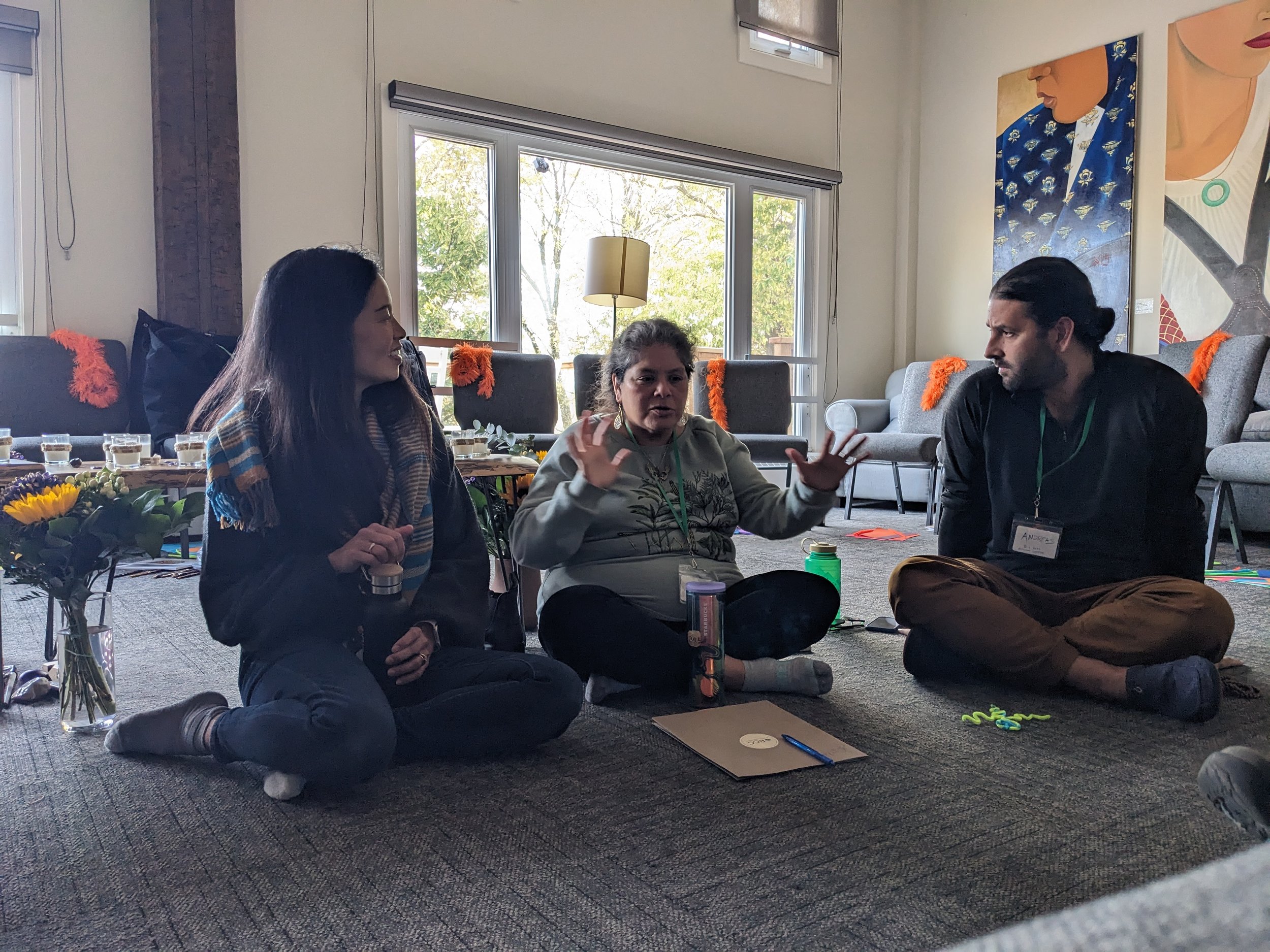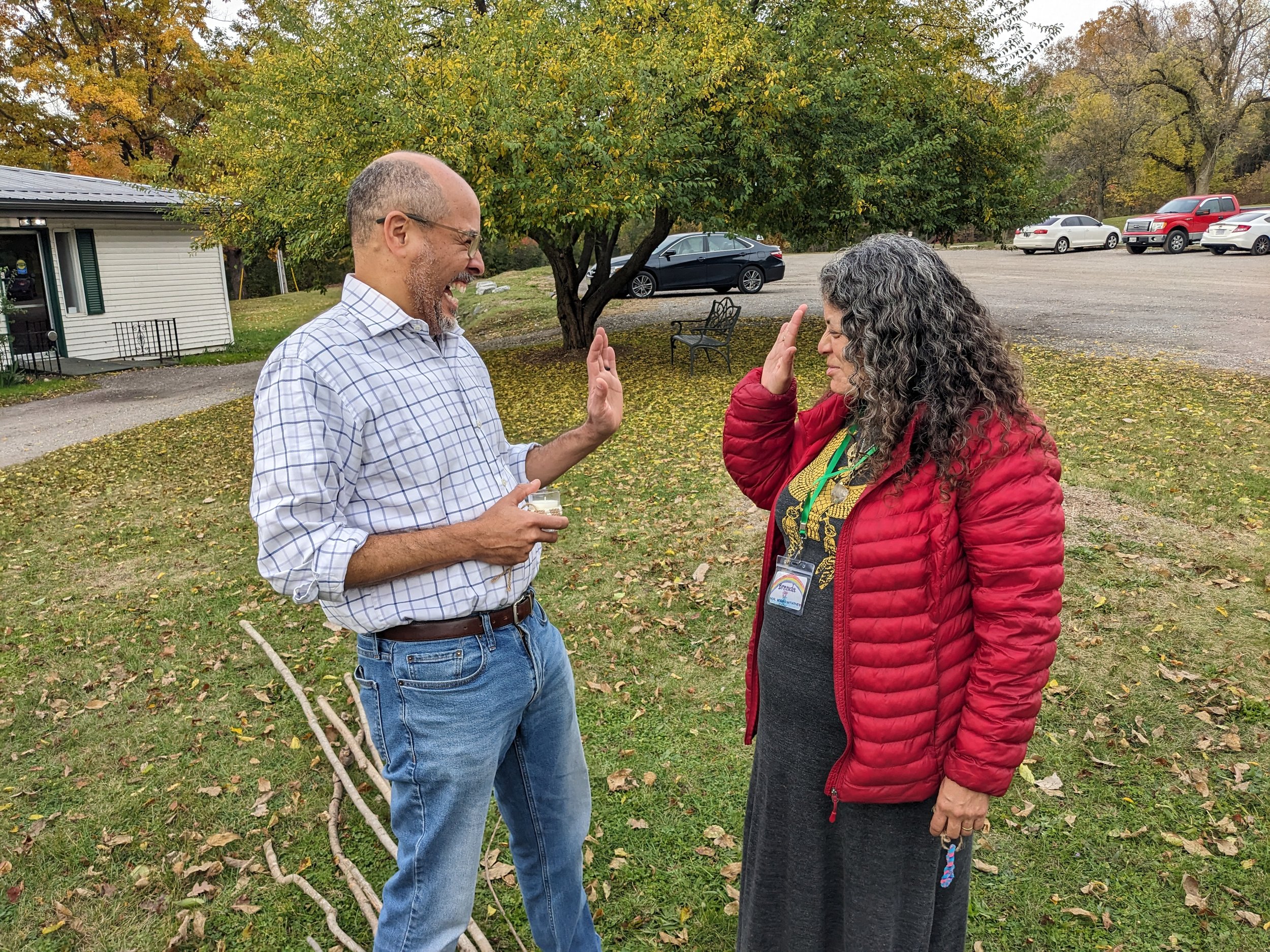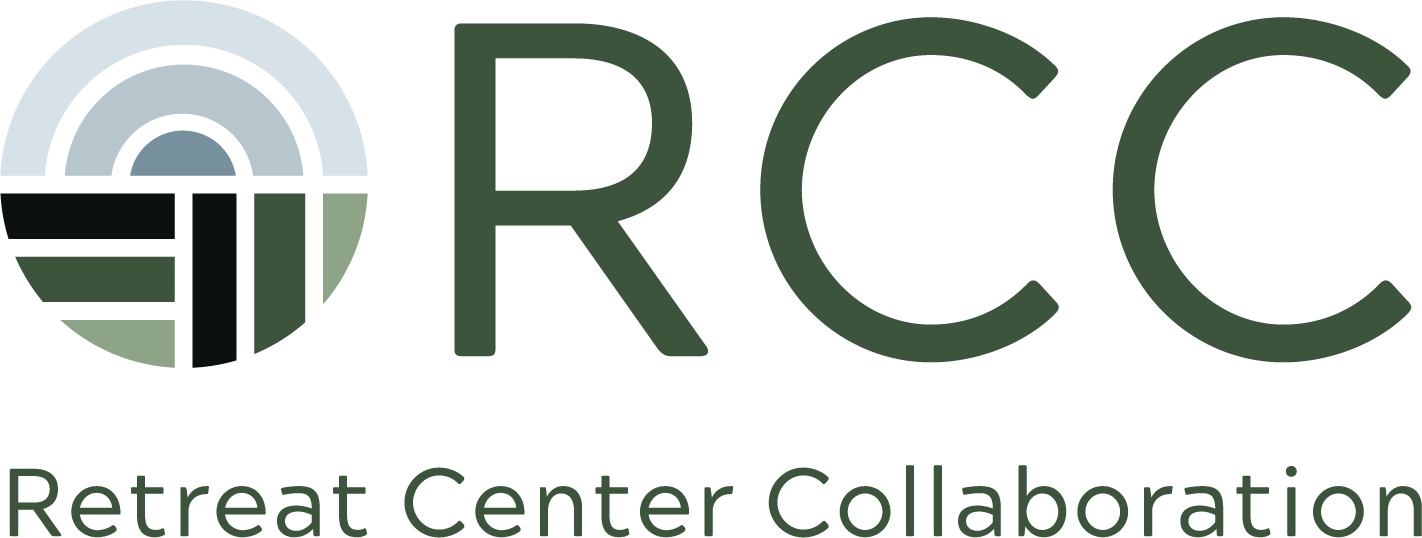About us
The Retreat Center Collaboration is a community of retreat center leaders from across the United States and Canada. We seek to identify emergent themes in our community that matter to all of us, and facilitate discussion and knowledge exchange among peers to support growth and innovation. We invite your retreat center to join us.
Our core values
THE POWER OF PLACE AND SPACE
Whether in a forest hermitage, a virtual gathering, or an urban sanctuary, retreat is an invitation to enter into a space that’s been set apart and intentionally designed to nurture contemplation, compassion, community, healing, and growth. Acknowledging that all places and spaces bear the weight of history, RCC members seek to disrupt patterns of exploitation and separation by designing for equity and wholeness, with deep attention to markers of intersecting identity.
THE INTERPLAY OF INNER & OUTER WORK
Personal and social transformation are like the inhale and exhale of breath: distinct but inseparable. Through individual and collective practices, RCC members commit to cultivate comprehensive transformation at all levels, from ourselves to our guests to our institutions.
A COMMITMENT TO UNIVERSAL FLOURISHING
The practice of retreat calls us to remember ourselves as part of a larger whole and to reimagine both our work and our stake in the healing of the whole. Wherever human patterns create suffering, RCC members commit to repair and renewal of relationship so that the Earth and all people can be free to live into regenerative and equitable futures.
Stewardship Circle Governance Culture Covenant
Practiced and approved at our February 2025 retreat at Pendle Hill
Cultivating depth of practice in how we are with one another in ordinary times is what gives us strength to hold together in extraordinary times, meeting the demands of each moment and each era with grace and shared vision. As believers in the power of retreat centers to serve the unfolding future of our planet, these are the commitments and tools that support the culture we seek to uphold as a network leadership body.
Shared Commitments
Hold quality of relationship at the center
Work consciously in service to the current moment, the network, and the larger world
Look to each other for knowledge and wisdom
Be aware of power, and use it to uplift and co-create
Give and receive feedback, and tend to impact
Be aware of our bodies
Lean into discomfort
Honor the gifts of both process and outcomes
Value the kindness of clarity, especially in times of complexity
Make decisions by unity, ensuring all voices are heard
Name and work with (not against) creative tensions
“Pragmagic”
urgency :: patience/grace
going fast :: going slow
practicality :: right relations
Tools for Practice + Accountability
Practices, rituals, and ceremonies for embodiment, land connection, relationship
Meeting check-in (personal, shared commitments) and check-out
Call for a moment (to breathe or move, to name a tension or transgression, etc.)
Gathering in person
Agitating questions
1:1 conversations and phone-a-friend
Shared facilitation
RCC core values
After-action review
Conscious contracts
Polarity thinking/mapping
Bringing balance through group membership
Our roots
Beginning in August 2018 with support from the Fetzer Institute, the RCC spent the first year of our collaboration convening with retreat center leaders and developing a working document, our Green Paper. This document outlines the central values and emergent themes that our collaboration has lifted up.
RCC continues to convene retreat center leaders, host Community Calls twice a month, and provide topical programming to small cohorts of participants, creating the container to exchange best practices and insights across a wide range of organizations. Together, we’re weaving a diverse network to strengthen this important sector.
Our work is to support retreat centers as they support transformation.
Our work
Transition and reinvention.
Retreat centers are forging new ways of being in the world, carrying rich legacies forward through difficult transitions and surprising reinventions. We’re learning from their stories and learning how to tell new ones.
Environmental stewardship.
As organizations that are often grounded in relationship with land, retreat centers are important places of refuge and response to climate change. Exemplary stewardship of these resources will guide the way in times of difficulty ahead.
Commitment to equity.
Spiritual retreat “in the wilderness” has largely been available only to religious monastics and white members of the upper class. We’re learning how diverse understandings of self and sacred lead us to sustainable and equitable relationships and centers.
Sustainable models.
Sustainable models — identified and gleaned from conversation within a network of peers — enable retreat centers to remain relevant and impactful for the long haul.
Expanding the “we.”
Retreat centers cultivate spaces for solitude, companionship, and renewal. Movement builders and changemakers rely on these spaces, and in turn, bring new energy and passion to the shared work of healing and transformation. These interdependencies transform our understanding of retreat itself.
New programming.
Collaborators are developing and piloting innovative programs across different geographies, diversifying participants at retreat centers and building new audiences and new ways of working.
